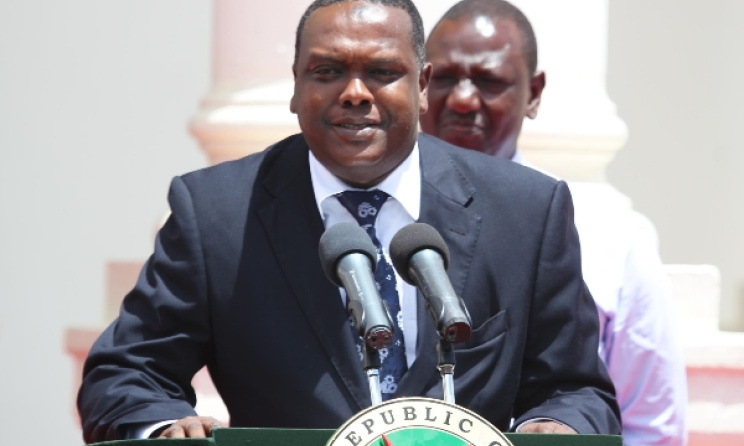Kenya’s new music policy faces backlash from industry experts
For the third time, Kenya has developed a national music policy draft to govern the activities of operators in the music industry. Through the Ministry of Sports Arts and Culture, the government reckons that the country’s music industry has for a long time operated without any policy guidelines. Haphazard and uncoordinated measures laced with unfair competition, the government notes, are what have ruled the industry in the past.
 Kenyan musician Nonini (aka Hubert Nakitare) represents secular music in the Music Policy advisory committee.
Kenyan musician Nonini (aka Hubert Nakitare) represents secular music in the Music Policy advisory committee. Dr. Hassan Wario Arero, Kenya's Cabinet Secretary for Sports, Culture and the Arts.
Dr. Hassan Wario Arero, Kenya's Cabinet Secretary for Sports, Culture and the Arts.
All these are not new issues to the policy makers at the Ministry of Sports, Arts and Culture, which until 2012 was known as the Ministry of Gender, Sports, Culture and Social Services, when the second draft of the national music policy was formulated. Just like in 2012, the Ministry asked practitioners to submit their views about the proposed policy draft. What followed was a three-year silence till April 2015, when another revised policy draft was presented to the stakeholders once again.
The policy is a welcome gesture towards the development of the industry, nevertheless for a keen observer it remains a great concern that more than 10 years after a World Bank-commissioned survey in 2004 placed the economic worth of the music recording industry in Kenya at about Ksh.11.52 billion (US$112 million) per annum the best the country can do is come up with policy drafts that never see the light of day.
Not much has changed from the second draft which stipulated guidelines for the Kenyan music industry; similarly the third draft policy proposes to put in place structures that are independent, fair and transparent to ensure the effective implementation of the policies only that this time there is an additional one proposed. The recommended bodies include the National Music Board that will be charged with the development and coordination of the industry. The National Music Tribunal— which is the new addition —will be responsible for dispute resolution in the industry. The Music Industry Development Fund will be mandated to help artists create quality Kenyan music works and give Kenyan talent the tools to fully develop their creative and business skills.
It is the proposition to charge music levies, meaning that the government plans to take a percentage of profits from local and international music events that has got tongues wagging among the music industry fraternity. As if that is not enough the policy also proposes that gate fees be fixed not by promoters but by the Music Trust Fund officials.
This has irked some operators. Representatives of the Nairobi-based Talent Management Agency have come out strongly against the proposed new laws. “You cannot ‘fix’ gate fees for a music event organizer. An event is an experiential product. A music event organizer is a taxpayer to the Government of Kenya, already subjected to various government and rights association levies related to public music events. A music event gate-fee is subject to various algorithms far advanced than fixing,” claims the agency.
“Our advice to the Music Trust Fund, should it see the light of day, is stick to your reason for being (or wanting to be). Anything beyond that borders on meddling with free enterprise, and putting your nose too deep into business that is not in your purview,” added the agency.
National identity, tourism, music education and training, copyright and intellectual property protection are some of the other key areas that this policy examines and claims to be of importance in forging a strong music industry. The policy also endeavours to ensure that 60% of music being played on Kenya’s radio and TV stations is by local musicians. It also aims to provide incentives for advertising companies, hotels and the national airline Kenya Airways to promote Kenyan music and to market both locally and internationally.
It is disconcerting to note that close to two months after the Ministry of Sports, Arts and Culture brought stakeholders together to field their opinion on the policy draft nothing has been heard from the Ministry. One could say they are reviewing the suggestions from stakeholders. Yet history tends to indicate otherwise. The policy draft marked as revised and dated January 2015 could be just that - until a few years later when it will be drafted for a fourth time and presented to stakeholders again. What remains for the practitioners is a wait-and-see game. Hopefully history will not repeat itself this time round and the government will look into issues that have been raised by stakeholders over the years when the policy was first drafted.





























Commentaires
s'identifier or register to post comments